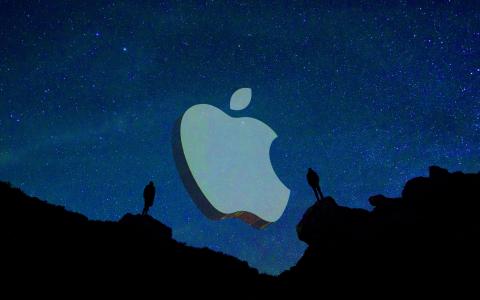
(Yahoo! Finance) - Less than a year after its birth, the "Magnificent Seven" moniker is wearing out its welcome among stock market aficionados. The problem grows daily, as does the disparity in returns among this much-vaunted group of megacap stocks.
One wonders if the magic of this motley crew — Nvidia (NVDA), Meta Platforms (META), Amazon (AMZN), Microsoft (MSFT), Alphabet (GOOGL, GOOG), Tesla (TSLA), and Apple (AAPL) — is simply gone.
Nvidia is up 85% this year alone and is seemingly in its own asset class. It continues to defy bears on a near-daily basis with 29 record closing highs this year, and it sports a market cap that has rocketed higher by over $1 trillion this year alone.
Meta Platforms doesn't get quite as much press as the AI poster child, but it's up nearly $400 billion in market cap this year, returning 175% over the trailing year.
Amazon and Microsoft are each adding about $250 billion to the market cap of the S&P 500 and Nasdaq 100 this year.
Enter the three laggards.
Tesla peaked in November 2021 — a height from which it cratered 75% over the next 24 months.
One may wonder why Tesla was included in the original Magnificent Seven after such a seemingly disastrous fall from grace. But the 2022 bear eviscerated all the market cap leaders of years past. It's easy to forget that Meta's market cap also got slashed by three-quarters.
By mid-2023, Tesla had doubled its share price and was once again in the world's top 10 largest companies.
Apple doesn't suffer from the volatility that fuels Tesla, but its sheer size means that its price losses — though smaller — still result in outsized drops in value. Apple is only down 10% this year, but that equals a $385 billion drop in market cap.
Then, there's Alphabet. The stock price has gone nowhere this year, and sentiment is bearish. Despite being a key innovator and leader in the field of artificial intelligence, it has faced a few high-profile embarrassments over its Gemini rollout, losing nearly $100 billion in one day in February.
Alphabet recently eclipsed its 2021 all-time high but has since backed off. If you squint at a multiyear chart, you can see a nice cup formation with perhaps a handle on the way. But for now, it's simply a false breakout with only nominal new highs.
Taking out the three clear laggards — Tesla, Apple, and Alphabet — improves the returns of the Magnificent Seven over the longer term.
And as a purely intellectual exercise, Yahoo Finance's Head of News, Myles Udland, reshuffled the Magnificent deck. He's keeping the Mag Four outperformers, losing the three laggards, and adding a couple "diversified" stocks — Costco (COST) and Eli Lilly (LLY) — to the list.
Eli Lilly recently gained fame (and fortune) with its weight-loss drug Zepbound. At the beginning of 2023, its market cap sat at about $350 billion, and it has since surged past $700 billion, placing it firmly in the realm of megacaps. Its 30% price return this year also makes it an attractive entrant.
Costco is a well-known, consumer-facing large-cap stock. But as a "boring" staple, it is decidedly not known for artificial intelligence. That might make it an appropriate counterweight to the other stocks so reliant on tech. Its market cap is just over $300 billion and its return is just over 10% this year.
All in all, the re-jiggered index competes nicely with the original. According to Yahoo Finance calculations, the Mag Four plus Costco and Eli returned over 135% since the beginning of 2023 — besting the Mag Seven's 90% return.
But neither beat the Mag Four return of 145% over the same period. As of this week, the Mag Four and newly constructed Mag Six are each up about 25% this year, while the Mag Seven is up 9%.
By Jared Blikre



